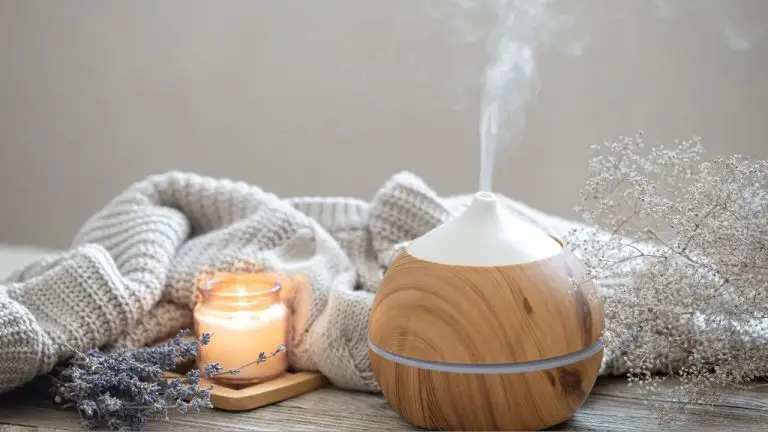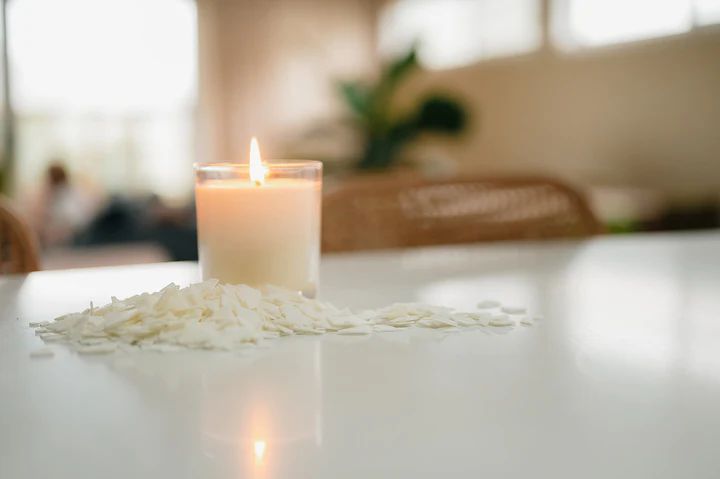What Is Lemon Used For In Essential Oils?
Introducing Lemon Essential Oil
Essential oils are concentrated extracts derived from plants that capture the plant’s scent, flavor, and beneficial qualities. They are made through distillation or mechanical cold pressing of parts of the plant, including the seeds, flowers, leaves, stems, roots, resin, or peels. Essential oils have been used for centuries in natural therapies like aromatherapy and herbalism and are prized for their health benefits, natural fragrance and therapeutic qualities.
Lemon is one of the most popular and widely used essential oils. The essential oil is derived from the rinds or peels of lemons through a process called cold expression. Lemon essential oil has a fresh, citrusy aroma and is yellow in color. It has many therapeutic uses and has long been valued in aromatherapy for its calming and uplifting effects. When diffused, lemon oil can help purify the air, uplift mood, reduce stress and improve concentration.
Some key references on essential oils include:
https://www.healthline.com/nutrition/what-are-essential-oils
https://www.webmd.com/skin-problems-and-treatments/ss/slideshow-essential-oils
Sourcing Lemon Essential Oil
Lemon essential oil is extracted from the rind or peel of fresh lemons. To produce the oil, the lemon rinds are mechanically pressed or cold pressed to rupture the oil glands and release the valuable oil.source The oil is then separated from the water using a distillation process.
The highest quality lemon essential oil comes from organic lemons grown in warm, tropical climates like Italy, Spain, California, and Argentina. Sicily in Italy is one of the world’s top producers of lemon oil due to its ideal growing conditions.source Sourcing lemons from premium regions helps ensure maximum oil yield and potency.
Benefits and Uses of Lemon Oil
Lemon essential oil offers a wide array of benefits given its antimicrobial and anti-inflammatory properties. Studies show that lemon oil can help boost mood, increase focus, reduce stress and anxiety, and promotes better sleep (https://www.healthline.com/health/lemon-essential-oil). The pleasant citrus scent of lemon makes it a popular choice for aromatherapy and diffusing. The oil’s refreshing aroma helps create an uplifting environment and improve overall wellness.
In addition to aromatherapy uses, lemon oil has many practical household and cosmetic applications. Lemon essential oil is an effective natural disinfectant. It can be mixed with water and vinegar to make a non-toxic cleaning spray. The antimicrobial action of lemon makes it useful for sanitizing surfaces and removing grease and grime (https://www.webmd.com/diet/lemon-oil-health-benefits).
For beauty and skincare, lemon essential oil helps promote clearer skin. It can be applied topically or added to DIY beauty recipes to reduce acne and brighten dull skin. The vitamin C in lemon oil helps rejuvenate skin and reduce wrinkles. Lemon oil also has benefits for hair care, improving shine and strength when mixed into treatments.
Using for Aromatherapy
Aromatherapy is a holistic healing treatment that uses natural plant extracts to promote health and well-being. The essential oils used in aromatherapy provide therapeutic effects through inhalation. As the oil molecules are inhaled, they stimulate receptors in the nose that send signals to the brain’s limbic system, activating centers that control emotions, heart rate, blood pressure, stress, and hormone balance. Lemon essential oil is often used in aromatherapy for its uplifting and clarifying properties.
The primary active compound in lemon oil that provides benefits is limonene. Studies have shown limonene has anti-anxiety and antidepressant effects, helping to boost mood and reduce feelings of stress. The bright, fresh citrus scent of lemon oil is energizing and has been found to fight fatigue and mental exhaustion. Diffusing lemon oil throughout a room can create an uplifting environment that enhances concentration and alertness. Lemon oil also has a clarifying effect on the mind, helping to clear away negative emotions like anger and sadness.
To use lemon oil for aromatherapy, add a few drops to a diffuser or inhale directly from the bottle. Place a diffuser in areas like the office, classroom or bedroom. Inhaling lemon oil before presentations, exams or during times of anxiety can provide a comforting, boosting effect. Lemon oil can also be blended with complementary oils like lavender and bergamot to enhance aromatherapy benefits.
Cleaning and Disinfecting Uses
Lemon essential oil is an excellent natural ingredient for cleaning and disinfecting the home due to its fresh, citrusy scent and potent antibacterial and antimicrobial properties. Lemon oil contains compounds like limonene that help break down stubborn grease and grime while also fighting germs.
Here are some examples of how to harness the power of lemon essential oil for natural cleaning:
- Make an all-purpose lemon cleaner by combining 15-20 drops of lemon oil with vinegar and water in a spray bottle. Spritz on countertops, appliances, windows, and other surfaces. The acidity of lemon oil and vinegar will help cut through grease and leave things sparkling clean (https://nikura.com/blogs/discover/how-to-use-lemon-oil-for-cleaning)
- Add 5-10 drops of lemon oil to a bowl with baking soda and water to make a gently abrasive paste for scrubbing bathrooms. The lemon oil adds a fresh scent and disinfecting action.
- Mix lemon oil with olive oil for polishing wood furniture. The lemon oil will help clean and disinfect while the olive oil conditions the wood.
- Add a few drops of lemon oil to dish soap for an antibacterial boost when hand washing dishes.
- Diffuse lemon oil in problem areas like trash cans to help neutralize odors and sanitize the air.
Always dilute lemon oil properly before using for cleaning, as it can be irritating at full strength. But when used correctly, lemon essential oil is an ideal natural disinfectant and cleaner.
Promoting Clear and Healthy Skin
Lemon essential oil is often used to promote clear and healthy skin, especially for those with oily, acne-prone skin. Lemon oil has natural astringent and antimicrobial properties that make it beneficial for battling acne (Healthline). The astringent nature of lemon tightens pores and reduces oil production, helping prevent acne breakouts. The antimicrobial effects combat acne-causing bacteria. Research shows lemon oil contains powerful antioxidants like limonene that fight free radicals linked to skin damage and aging (Rocky Mountain Oils).
Apply lemon oil sparingly and diluted with a carrier oil to clean skin. Massage in small circular motions. Use no more than once a week to avoid irritation. Those with sensitive skin should use caution. Lemon oil may also help lighten acne scars and sun spots over time through gentle exfoliation. It should not be applied before sun exposure due to photosensitivity.
Hair Care Applications
Lemon essential oil is commonly used in hair care routines due to its beneficial properties that help cleanse, condition, and stimulate the scalp and hair. The antiseptic and antibacterial compounds in lemon oil help keep the scalp clean and free of buildup and dandruff. Studies have found that lemon oil can help reduce dandruff by balancing the pH of the scalp and reducing fungal growth that causes dandruff flakes. Lemon Essential Oils: How It Can Be Beneficial To Your Hair.
Lemon oil is also known to help condition hair and add shine. The vitamin C and antioxidants in lemon nourish the hair and scalp. The oil can help restore moisture and softness to dry, damaged hair. Many people add a few drops of lemon oil to their shampoo or conditioner to boost the benefits. Some also make homemade hair masks with lemon oil, honey, and oils like coconut to deeply condition the hair.
In addition, lemon oil can stimulate circulation on the scalp which promotes hair growth. The improved blood flow provides nutrients to the hair follicles and stimulates growth. Lemon oil is sometimes mixed with carrier oils and massaged into the scalp to take advantage of this benefit. Regular scalp massages with lemon oil may help reduce hair loss and thinning of hair. Lemon Oil for Hair: Benefits, Uses, and DIY Recipes.
Diffusing for Wellness Support
Diffusing lemon essential oil can provide a range of wellness benefits. Lemon oil contains stimulating and clarifying properties that can help promote alertness and concentration (doterra.com). It also has a fresh, uplifting scent that can positively affect mood.
Here are some diffuser blend recipes using lemon oil:
For energy: Combine 2 drops lemon oil, 2 drops grapefruit oil and 1 drop peppermint oil. This blend will provide an energizing aroma to help you feel more awake.
For focus: Mix 3 drops lemon oil, 2 drops rosemary oil and 1 drop frankincense oil. This combination can help sharpen concentration when you need to be mentally focused.
For respiratory health: Add 2 drops each lemon oil, eucalyptus oil and tea tree oil. Breathe in this blend to open airways and clear nasal congestion.
Always follow safe usage guidelines when diffusing essential oils. Monitor your body’s response and discontinue use if any irritation occurs.
Risks and Precautions
While lemon oil has many benefits, there are also some risks and precautions to be aware of when using it:
Photosensitivity – Lemon oil can make skin more sensitive to UV rays and sunlight. If applying lemon oil to skin, avoid sun exposure for at least 12 hours afterwards. Consider using in the evenings to reduce photosensitivity reactions.1
Skin irritation – Lemon oil is very concentrated and can cause skin irritation, redness, burning, or rash if applied directly. Always dilute lemon oil with a carrier oil before applying to skin. Do a patch test before wider use.
Toxicity if ingested – Lemon oil should never be ingested undiluted as it can be toxic. Only use food-grade lemon oil internally when heavily diluted with water or other beverage.
Eye irritation – Avoid contact with eyes as lemon oil can cause stinging and irritation. Flush eyes with water if contact occurs.
Drug interactions – Lemon oil can potentially interact with UV light therapy, antibiotics, heart medications, and more. Consult your doctor before use if on medication.
Pregnant/nursing caution – Speak with your doctor before using lemon essential oil while pregnant or nursing.
The bottom line is to always dilute lemon oil, avoid UV exposure after use, do a patch test before wider application, and consider precautions if pregnant/nursing or on medication.
Finding High-Quality Lemon Oil
With the popularity of essential oils, it’s important to find a high-quality therapeutic-grade lemon oil for the best results. Here are some tips for sourcing pure lemon oil:
Look for oils that are 100% pure and certified organic. Stay away from oils that say “fragrance oil” or “perfume oil” as these are likely synthetic. reputable brands like Eden’s Garden and Majestic Pure offer high-quality, unadulterated lemon oil.
Check that the oil is cold-pressed and steam distilled from fresh lemon rinds. This preserves the delicate compounds. Oils that say “lemongrass oil” may be misleading.
Only purchase therapeutic-grade oils from reputable suppliers. Avoid retailers that don’t provide detailed information on sourcing and extraction methods.
When possible, look for oils derived from organic lemons. This avoids pesticides and ensures the lemons are non-GMO.
Check reviews and ask for recommendations to help find a trusted brand known for strict quality standards when sourcing and bottling their lemon oil.
Once you find a high-quality lemon oil, store it properly in a cool, dark place to maintain freshness and potency. With pure therapeutic-grade oil, you can unlock the many wellness benefits of lemon essential oil.





